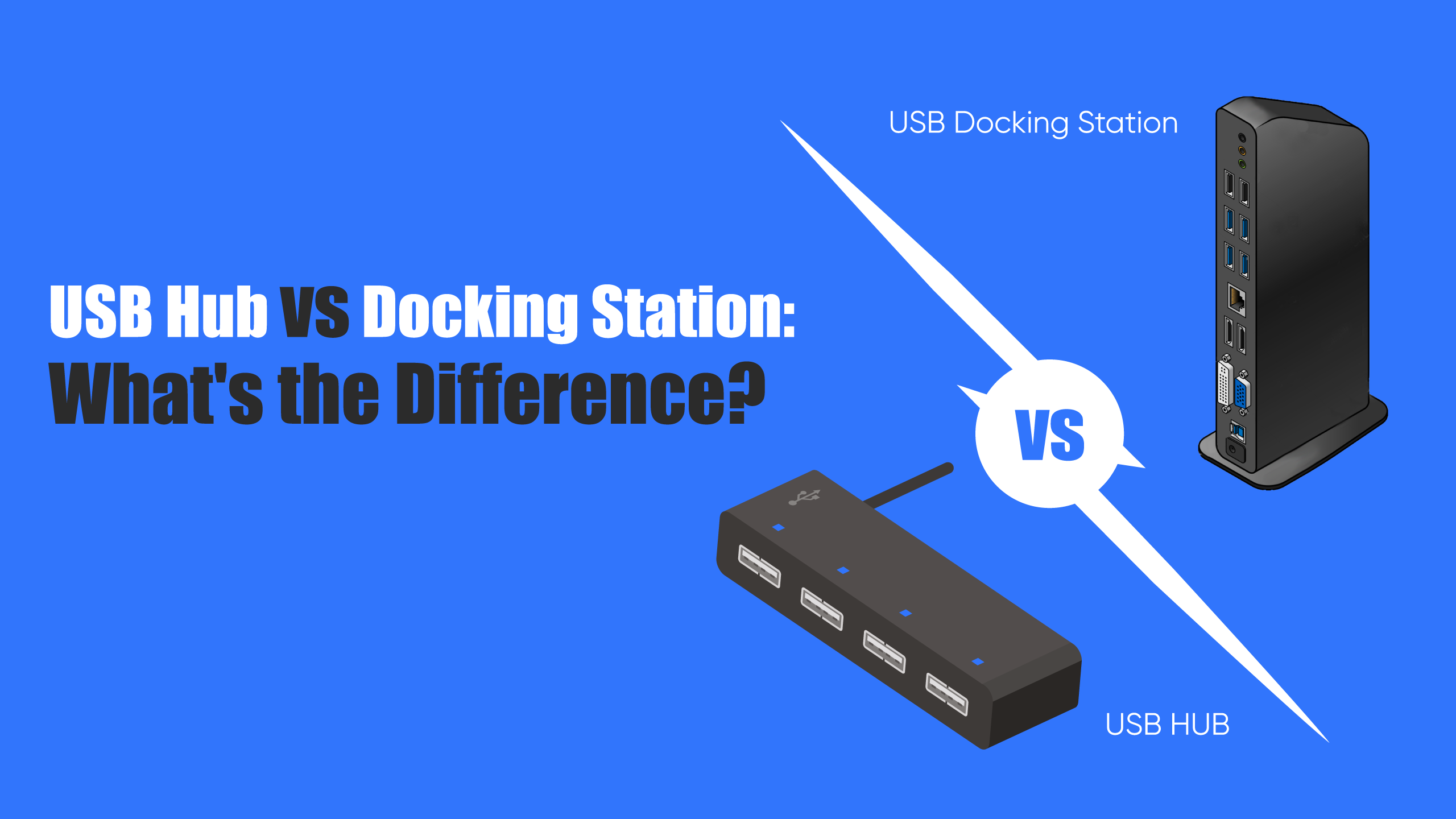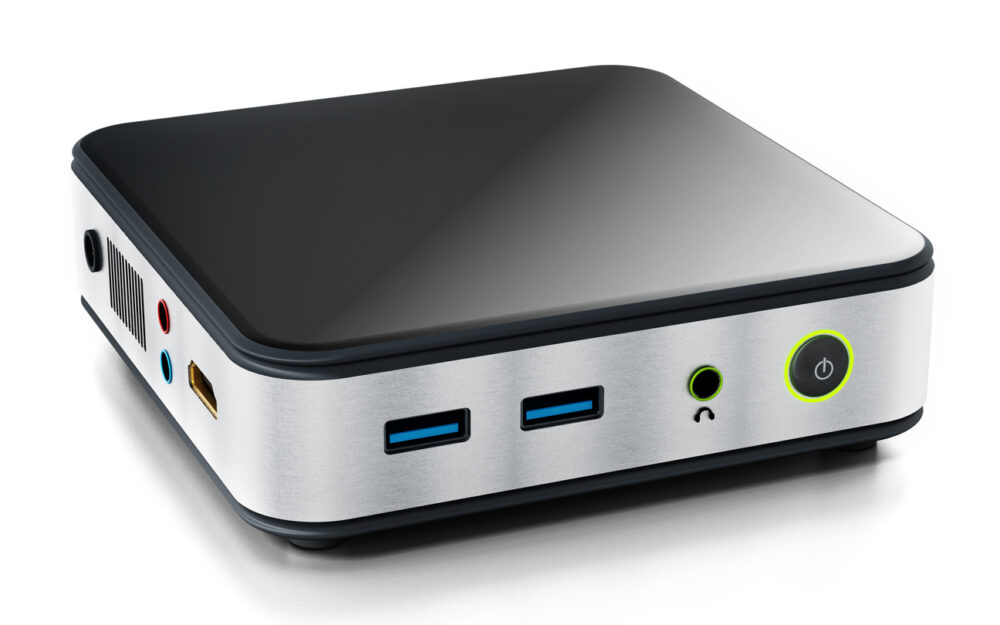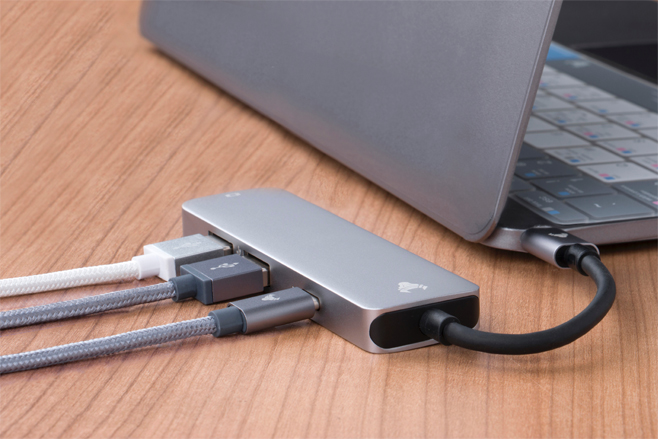
Differences between USB Hubs and Docking stations
In today's fast-paced business environment, efficiency and productivity are key. Technology plays a critical role in enabling businesses to work faster, smarter, and more effectively. However, with so many different devices and peripherals, it can be challenging to manage connectivity and ensure seamless workflow. Two popular solutions for expanding connectivity options are USB hubs and docking stations. Here, we will explore their key differences, so you can decide which one is the right choice for your business needs.
USB Hub vs. Docking Station
A USB hub is a device that expands the number of USB ports available on a computer or other device. It allows users to simultaneously connect multiple USB devices, such as printers, scanners, external hard drives, and promotional power banks. USB hubs are typically small and portable and require no additional power source, making them ideal for users who are frequently on the move or have limited desk space.
A docking station is a more advanced connectivity solution that allows users to connect multiple peripherals and accessories to their devices in a single unit. It typically includes a range of ports, such as USB-C drives, Ethernet, HDMI, VGA, audio output, and more, allowing users to create a desktop-like setup with their laptop or tablet. Docking stations are typically larger and require an external power source to operate.

Browse Our Wide Selection of Competitively Priced, Highly Customizable USB-C Drives for Businesses
Connectivity Options
The primary difference between USB hubs and docking stations is the range of connectivity options they offer. USB hubs are only designed to expand USB connectivity while docking stations expand whatever connectivity options you have. Docking stations offer additional features, such as video output, audio output, Ethernet connectivity, and power delivery. This makes them ideal for users who need to connect multiple peripherals and accessories, such as external monitors, keyboards, mice, printers, and more.
Portability and Desk Space
Another significant difference between USB hubs and docking stations is their size and portability. USB hubs are small, portable, and ideal for users who are frequently on the move or have limited desk space. They are typically powered by the device they are connected to, making them an easy and convenient option. On the other hand, docking stations are larger and require an external power source to operate.
Compatibility
Compatibility is another crucial factor to consider when choosing between USB hubs and docking stations. USB hubs are typically plug-and-play devices, meaning they require no additional drivers or software to operate. They are compatible with a wide range of devices and operating systems, making them an ideal solution for users who need a quick and easy connectivity option. Docking stations, on the other hand, may require additional drivers or software to operate fully. They are typically designed for specific devices or operating systems, so it's essential to check compatibility before making a purchase.
Price
Price is another important consideration when choosing between USB hubs and docking stations. USB hubs are generally more affordable than docking stations, making them an ideal solution for users on a budget. Docking stations can be more expensive, but they are compatible with more connection points, making them a worthwhile investment for businesses that work with more than one type of connectivity method.
Hybrid Hubs

Hybrid hubs are innovative devices that combine the functionalities of traditional USB hubs with additional features, making them more versatile and powerful. These hubs go beyond simply expanding the number of USB ports and can work with other connectivity options, including video output, audio output, Ethernet connectivity, power delivery, and more. Hybrid hubs are designed to provide a comprehensive solution for creating a desktop-like setup, connecting peripherals, and transforming your device into a productivity powerhouse.
Which Is Better?
The answer to whether a USB hub or docking station is better depends on the specific needs of the business.
USB hubs are more portable and versatile than docking stations. They typically have a smaller form factor, making them easier to carry around and use on the go. USB hubs are also compatible with a wider range of devices, including laptops, tablets, and smartphones. They can provide a quick and easy way to expand USB connectivity, as well as other features like video output and power delivery.
Docking stations are typically designed for use with specific devices, such as laptops or tablets. They are often more expensive than USB hubs. Docking stations are ideal for businesses that need a fixed workspace with a wide range of connectivity options for multiple peripherals and accessories.
Final Thoughts
Ultimately, the choice between a USB hub and a docking station depends on your specific business needs and requirements. If you need a simple and portable solution for expanding USB connectivity, a USB hub may be the right choice. However, if you require more advanced features and a central hub for multiple devices, a docking station may be better.